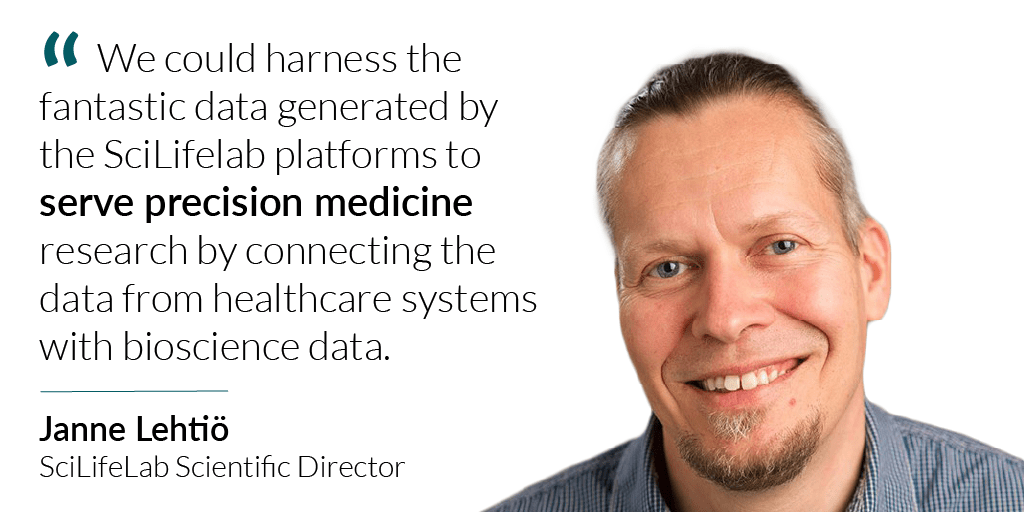Janne Lehtiö on precision medicine and diagnostics research within the DDLS program
“I think combining the different data types, such as genomics, proteomics and molecular imaging on single cell and tissue level will improve our understanding of complex, today untreatable diseases” says Janne Lehtiö, SciLifeLab Scientific Director and newly elected chair of the Data-Driven Precision Medicine and Diagnostics research area specific expert group, in this Q&A
Professor Janne Lehtiö was recently elected chair of the Data-Driven Precision Medicine and Diagnostics research area specific expert group, and will have the coordinating role of the nine member group.
The group will for example advise on research area specific strategies and research profiles for the scientific programs of the SciLifeLab and Wallenberg National Program for Data-Driven Life Science (DDLS).
In this Q&A, Lehtiö elaborates on how Data-Driven Precision Medicine and Diagnostics fits into the DDLS program, his hopes and expectations for the program and the future of data-driven research within precision medicine and diagnostics research.
How does Precision Medicine and Diagnostics dock into the DDLS program?
The entire idea of precision medicine using the gathered data to predict which treatment will be most effective is very closely related to data-driven life science. It’s patient and medicine related big data analysis that will open the door for entirely new possibilities.
What do you hope to achieve with the expert group?
I hope we will gather wide expertise and multiple points of view on this area from computational science to healthcare to form a think-tank that pushes the boundaries on how we can develop the area within DDLS.
The mission of the DDLS program is to act at the global research frontline and have societal impact – could you give an example of what that could be in the field of Precision Medicine and Diagnostics?
We could harness the fantastic data generated by the SciLifelab platforms to serve precision medicine research by connecting the data from healthcare systems with bioscience data. The societal impact can be everything from providing input on how to change the legislation to speeding up precision medicine, to providing preventive precision health advice to the public as a result of new scientific discoveries.
A number of DDLS Fellows are currently under recruitment – what are your hopes and expectations that they will bring to the research field?
I’m so excited to get these promising next generation research leaders to work with precision medicine! I hope they will bring new innovative ideas to connect the fields and with that win over more computational scientists to work in the biomedical research field to begin with.
The DDLS program spans over twelve years. If you were allowed to speculate, where has data-driven life science taken research on Precision Medicine and Diagnostics in 2032?
We have hopefully realized the value of rich baseline profiling of the biological body in relation to both health and patient reported symptoms and disease trajectories. This will allow healthcare professionals to provide each patient with much more effective treatments and avoid toxic side effects of wrong treatment. I think combining the different data types, such as genomics, proteomics and molecular imaging on single cell and tissue level will improve our understanding of complex, today untreatable diseases, so that we will see solutions for effective interventions.





